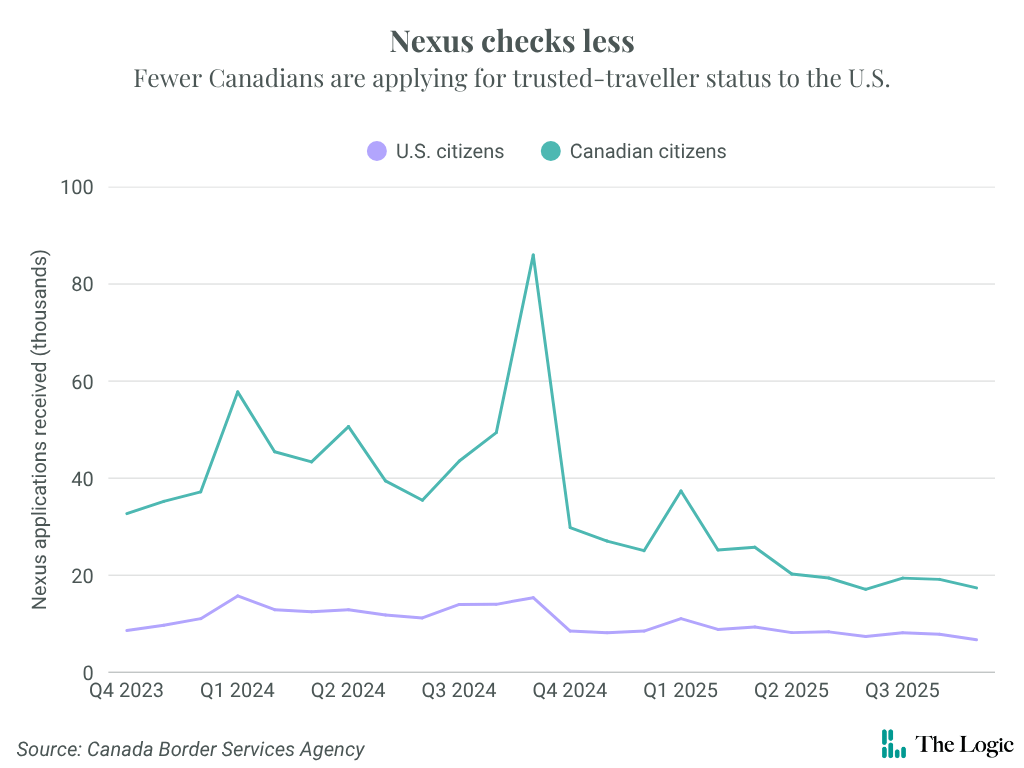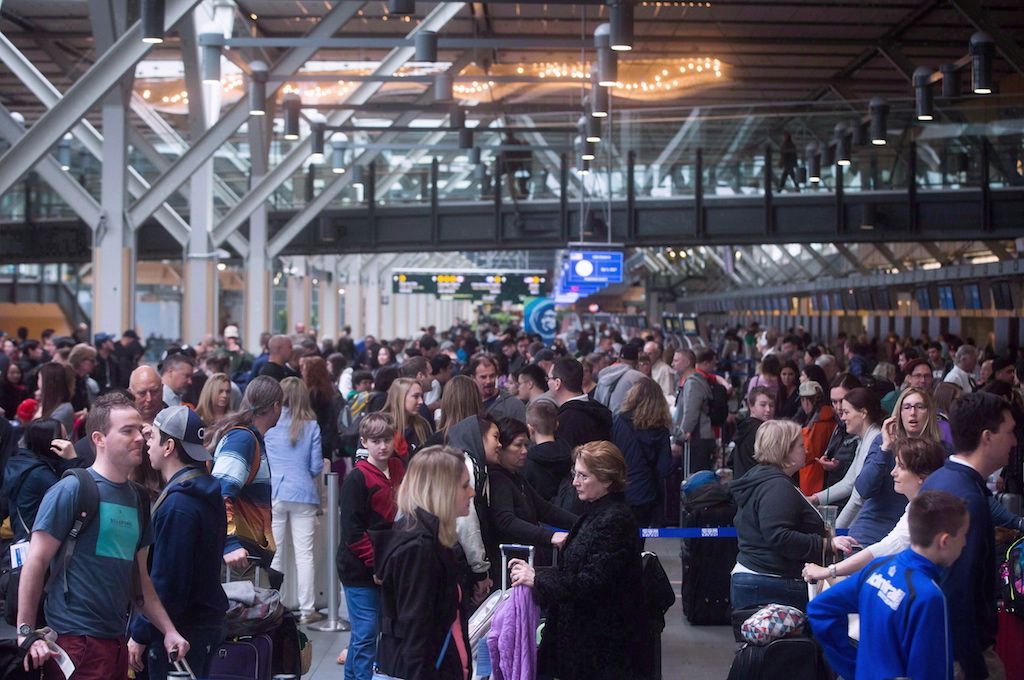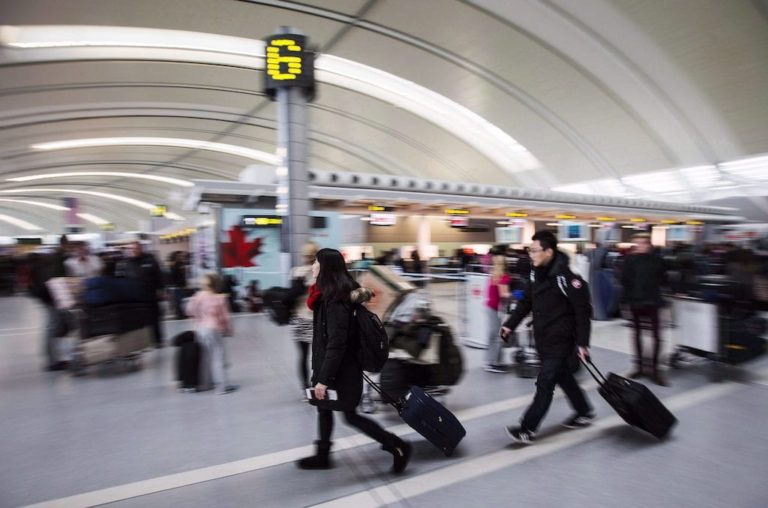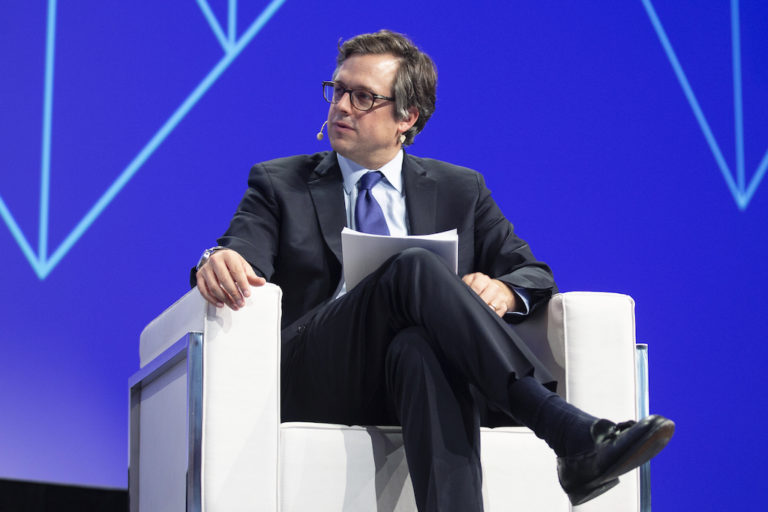OTTAWA — Some Canadian senators are trying to get long-standing calls for a domestic trusted-traveller program off the ground as they ask why U.S. Homeland Security still decides which Canadians qualify as “low risk.”
Most major airports in Canada have two security lines: one for the masses, and the other for verified travellers who’ve been vetted and can stride through the faster queue without taking off their shoes or pulling out their electronics and travel-sized shampoos.
Talking Points
Two senators have called for Canada to reconsider U.S. Homeland Security’s role in vetting Canadians who want to use the trusted-traveller lane for domestic air travel
Most Canadians flying within their own country need a Nexus card to use the fast line at airport security, even though the program was designed for cross-border travel; the Canadian Airports Council has been trying to change the system for years
The coveted line is only available to flight crews, members of the police and military, and people who’ve been approved by Nexus, a joint program between Canada and the U.S. that requires checks and screening interviews by both the Canada Border Services Agency (CBSA) and U.S. Customs and Border Protection.
The Nexus program was designed to speed up travel between the two countries, but it’s also one of the few ways most Canadians can get faster screening when travelling within their own country. For years, the Canadian Airports Council asked Ottawa to launch a program aimed at domestic travellers, saying it would ease their travel without forcing them to apply to Nexus, while making airports more efficient and competitive.
Now, as Canada moves to bolster its sovereignty in the face of U.S. President Donald Trump’s trade war, Paula Simons, an independent senator from Alberta, is pushing the issue. “I think it’s urgent that we disentangle ourselves from a dependency on American homeland security,” she said in an interview.
Related Articles
The Senate can’t order the government to create a sovereign program because it doesn’t control Ottawa’s purse, so Simons tabled a motion to push the public safety department to consider the idea. Simon Lafortune, press secretary for Public Safety Minister Gary Anandasangaree, said there are currently no plans for a domestic program.
More than taking a stand against American policies, Simons said, it’s about logistics. People with near-term plans to fly to the U.S. can do their screening interview for a Nexus pass at most major airports, where U.S. Customs and Border Protection runs pre-clearance services. However, in September, U.S. ambassador to Canada Pete Hoekstra told the Global Business Forum in Banff, Alta., his government may rethink those operations, as the number of Canadians travelling to the United States has dropped precipitously since Trump launched his first round of tariffs against Canada in March. In August, round-trips south of the border were down 29.7 per cent compared to the same time last year.
Though the number of Canadians applying to Nexus spiked in September 2024, just before the cost of a pass was set to increase from US$50 to US$120, those numbers have likewise dropped. The program received 25,057 applications from Canadians in December 2024, the month after Trump was elected, but only 17,380 last month.

Canadians who don’t plan to fly to the U.S. any time soon must travel to a border crossing to be interviewed by U.S. officials if they want access to the Nexus pass. That’s not so bad for folks in Ottawa, who only have to drive about an hour to nearby Johnstown, Ont. But those in Edmonton, where Simons lives, would have to trek six hours to Coutts, Alta., for their interviews.
Simons worries French speakers may not be able to get their screening interview done in their preferred language because there’s no guarantee a French-speaking Homeland Security officer will be on duty. “Our Constitution guarantees equal right to services, especially services like this, that are federally regulated,” she said.
Sen. Kristopher Wells, a member of the Progressive Senate Group and advocate for the 2SLGBTQI+ community, told the Senate an independent domestic program is needed now that a U.S. policy change under Trump means Nexus will no longer recognize the “X” gender designation Canada adopted in 2019 for people who don’t identify as strictly male or female.
“Imagine knowing that your neighbour, coworker, sibling or child is being denied access to a government-sponsored program because of how a foreign government chooses to categorize them,” Wells said in a speech in the Senate chamber on Oct. 7. “These changes run directly counter to Canadian law and Canadian values.”
Vincent Correia, co-director of the Institute of Air and Space Law at McGill University, said he was surprised at how closely linked the Canadian and U.S. security apparatus was at Canada’s airports when he first arrived from his native France. “Controlling who and how people enter the country is usually something that is very closely tied to sovereignty,” he said. The European Union is similarly integrated, he noted, but the shared trusted-traveller infrastructure at Canadian security lines is uncommon in the rest of the world.
Given its chilled relationship with the U.S. over the last 10 months, it makes sense for Canada to pursue more autonomy, Correia added. The CBSA already screens Canadians looking to access a Nexus pass, noted David Grondin, a University of Montreal professor focused on border security and surveillance. The main challenge, he said, is the cost.
The government plans to rein in some of its day-to-day spending in the upcoming budget, which Prime Minister Mark Carney said will include austerity measures. Even if the government agrees with the need for a more sovereign process, Grondin said they “won’t necessarily agree with the remedy.”
Simon’s motion calls on the Liberal government to explore the costs and lay out the national security and Charter risks of maintaining the status quo, though, if it passes, the government can decide whether to comply. Simons hopes at least to spark a public conversation on the issue.
“If we took a common-sense approach to this, it wouldn’t be hard to give Canadians a verified traveller card that they could use to travel through their own airports,” she said.



